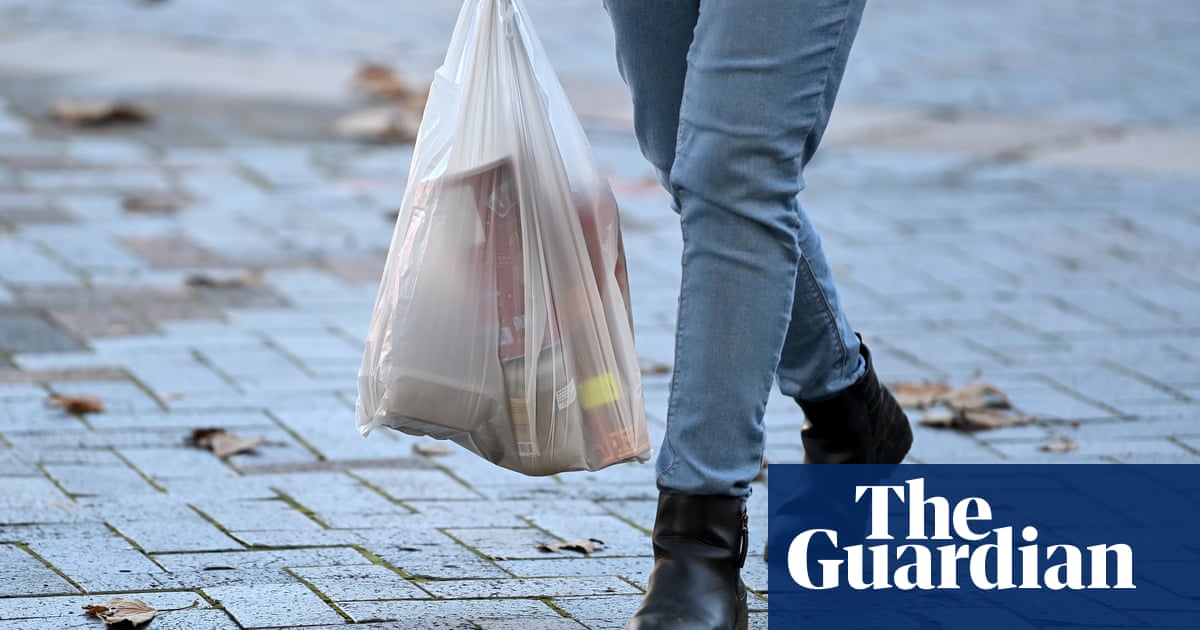Environmental campaigners have called on the government to learn from its own successes after official figures showed the use of single-use supermarket plastic bags had fallen 98% since retailers in England began charging for them in 2015.
Annual distribution of plastic carrier bags by seven leading grocery chains plummeted from 7.6bn in 2014 to 133m last year, the Department for Environment, Food and Rural Affairs (Defra) said on Monday.
Reminder that the biggest by far source of micro plastic in the air we breathe comes from tires. And there is zero research being done to find an alternative
It’s second to synthetic textiles
Edit. in the ocean
https://www.horiba.com/int/scientific/resources/science-in-action/where-do-microplastics-come-from/
Thanks for providing the article, was an interesting read
Yeah but synthetic textile is very broad and can be many products across different industries. A tire is an end product and if you find an alternative for that, you knock off the most contributing product of micro plastic.
We already have a way to solve this, just don’t drive so much.
Metal tires and metal roads. Kind of slippery, so we might need to make some sort of ridges to guide our vehicle’s direction. Stopping will still be hard, but if we just lock cars together and do it all at once it might be feasible.
Damn u had me confused till the last line. Well played.
I see your from feddit.nl, which makes your comment make sense, but you really need to realize that in many places in the world, the way the town’s and cities were built, it’s just impossible to implement public transit, and biking isn’t really an alternative.
Or places where public transit is a thing, it is really inconvenient.
My girlfriend can drive to work in 30 minutes. Taking the bus takes her over an hour. So instead of a 1 hour drive each day, she’s on the bus for 2.5 hours + waiting + the inconvenience of the buses not being on schedule + the buses shutting down at midnight
It’s great if you can commit an extra 1.5 hours every day just to sit on a bus, but she can’t. Not to mention that’s just going to work. If she needed to stop by for groceries, pet food, doctors appointments, etc, she’s adding an insane amount of time in between by having to switch buses.
I know cars are bad, but going to work + running errands legit wastes a good 3+ hours vs taking a car. That’s a massive chunk of wasted time. She has shit she needs to do at home, she can’t spend a quarter of her day sitting on public transit.
Imagine if the public transport system wasn’t rubbish and your girlfriend could travel in the same 30 minutes?
Public transport isn’t the problem, it’s the solution
Really depends where you are how feasible it is. Where I live we have a great public transport system. Most stations can be reached within 10 minutes when walking and there’s a tram leaving the station every 10 minutes. So getting anywhere in the city is fairly quick and wait times are mininal in most cases.
Travel outside the city and it’s a whole different story and unfortunately there isn’t really a good way to fix it. Just increasing the frequency of busses/trains isn’t feasible because 90% of the rides will be empty at this point which makes no sense.Okay. I’ll tell my city to just tear down half of it so they can build a better system.
Like I said, not all towns and cities were designed for it. It’s not something you can just plop in centuries down the road. The world doesn’t work that way.
Any new development should have public transit in mind. Old development can’t really be retrofitted. It’s like you missed my entire comment.
In many places the cities were retrofitted for car centric infrastructure already, why couldnt it happen again?
Great. And again, not ALL cities can do that.
Car-centric cities waste tonnes of space on parking which sits empty most or all of the time. Improving them requires less knocking stuff down and more filling in the gaps.
Luckily your city doesn’t have to pay for this - since property developers will do it for you to make money for themselves. You just need to fix the regulatory barriers: remove parking minimums and legalise mixed-use zoning.
If you want to accelerate the process, your local government can adopt the Japanese model: build rail or light rail and then develop dense areas around or above it. This is generally profitable but requires taking on a decent amount of initial risk.
So it can be done. But sitting around grumbling about how a better future is impossible because everything has to stay how it is right now won’t get us there.
So it can be done. But sitting around grumbling about how a better future is impossible because everything has to stay how it is right now won’t get us there.
Conveniently ignoring the part where I said new developments should absolutely have public transit in mind.
If you’re willing to spend enough money, anything can be retrofitted.
You just described how bad the public transport where you live is, not why it can’t be better. We 100% can and should be building better public transport & active transport, as well as building places with better land use for these.
Then your (presumably Canada) country needs to start re-doing the cities so they aren’t dependent on private cars. NL was also going that way in the 1970s until they changed direction. The best time to do it would have been back then, but the second best time to do it is start now.
Lol just redo the city
It can be done.
It will not be cheap.
Who is going to pay? The Canadians who live in the most expensive country in the world and cannot afford to live anymore?
You guys are ignorant as hell lol
When the petrol car ban comes in, this could take care of itself as everybody finds themselves priced out of driving.
We’ll need a really good public transport system to replace it, but we won’t get that either because we’re too poor to care about.
A lot of people are already priced out of driving. We need to be building that public transport network, along with active transport infrastructure and better land use anyway.
With petrol you can always get a £500 banger, run it into the ground over the next year or two and repeat.
With electric it starts at about 5000-6000, and you’ll be paying £500 a year just to rent the battery. It’s the batteries that are going to keep that out of reach of the poorest.
And you still need insurance, fuel etc on top of that, and your £500 banger isn’t going to be very reliable.
You can get a decent bike for £50 or a bus ticket for £2. The problem is in a lot of the country it isn’t safe to cycle and the buses are shit, so we need to fix those things to have transport that works for everyone (and doesn’t create microplastics).
Where are you getting this battery rental from? I only knew of Renault and the very first Nissan leafs that did battery lease.
All the cheapest ones when I searched were Zoe’s, presumably because of the battery lease not being included in the purchase price.
@Blackmist @ChromeSkull
Zoes have been around for a while.
Were the cheaper cars not the older ones?
@Blackmist @mondoman712
I only know of Renault leasing the battery in the Zoe.Otherwise, the battery is part of the car and sold as part of it, with a guarantee.
I think your £500 banger has to be years older than any large number of BEVs, and will cost you more to scrap after you ture of repairing it.
@Blackmist @mondoman712
It isn’t a ban, there are huge numbers of them, of which less than a tenth are new any year.That tenth of new car buyers can keep last year’s car, or buy a second hand car, but these are new car buyers, they’ll buy a new EV, mostly, or their firm will.
2,3,4…10 owners down the line, look forward to a used EV coming your way, a couple…10 years after no new petrol cars are made.
deleted by creator
@Lemmylaugh @Emperor
The tire companies researched and innovated for EV tyres, and that reduces shedding.
It’s heartening to see that a small change can make such a big difference. Good luck trying to get the Tories to take that message onboard though.
I was surprised myself, 10p a time adds up. Being so cheap it was easy enough to carry 2 large clothe bags in my backpack everywhere. Saved a fortune over the years over paying for plastic bags.
I honestly don’t even usually want a bag.
But it’s the default and I’m too lazy to tell them I don’t need one every time. Making it not the default is plenty.
What is missed in this article is bags for life purchases. We saw the same article more or less in 2019 and once you factored that in there wasn’t much of an improvement in plastic use or disposal. Expect the same to appear after this article at some point.
A reusable plastic bag only needs to be reused ~40 times before it is better than single use plastic bags. Are people really using them so few times that they can’t hit that?
All the data says that no, people are not reusing them.
Anecdotally, it makes sense. You left your bag in the trunk, or at home, or it turns out you got slightly too many groceries, or you’re staying at a friend’s house and you pop out to get some groceries and don’t have your bag…
Well that’s a shame. I guess living in a car-centric region it’s easy for me to just throw them in the trunk so I always have them, but I could imagine if I was taking public transit more often it would be easier to forget them.
Yup, my bus stop is next to the supermarket and I’ll often pop in on my way home from work to get some stuff I realised I need. I have a big bag full of reusable plastic bags at home now. But I’m glad it is working for many people
40 times is fucking wild, I maybe get 5-10 if I really go hard before I forget to bring it one time and have to buy another one
Even in that scenario, it’s not like the first one goes away. Now you have two reusable bags.
Now I have 20+ until I can’t store them any more so I have to throw them out*
There’s no real way to get rid of surplus bags, that’s the problem. So they just pile up until they go to landfill. If shops let you return bags somehow that would be fantastic.
Kind of interesting statistic proving people will adapt when forced too, at a time lots of people with dodgy agendas are claiming people won’t go for environmental policies that inconvenience them.
Yeah this is why I find Keir’s pushback on Khan over ULEZ odd. By the next GE the ULEZ expansion would have been in place for nearly a year and the residents would have gotten over it - based on previous evidence (especially since most of the pushback is based on misinformation about what the scheme will do anyway)
I don’t understand anything Keir is up to at the moment. I was willing to give him the benefit of the doubt right after the disastrous end of the Corbyn era, but he seems to be pushing all the right buttons to put me off in theast year or two.
But yeah, I remember people moaning about the bag coat when it came in, and lo and behold a year later everyone knew what to do and got on with it. ULEZ will be the same, you may have a few white van men and taxi drivers moaning still, but most drivers will realise it doesn’t effect them and move on.
The county north of the one I live in decided to just ban them completely. So the big chain store that used to have free paper or plastic bags switched to charging for the paper bags.
This seems like such a better idea.
I wonder how Walmart is going to implement and they switched most of their check out lines to self checkout.
Self serving checkouts ask you how many bags you want and charge for them in the UK. I have seen a growth in adults using backpacks, it wasn’t the norm before the bag charge.
Yeah I use my backpack, much better for carrying heavy groceries
Doesn’t everyone else just click no bags? Free bags baby.
Cameras, I mean you could pretend to scan stuff and walk out if you wanted.
What’s the outcome of that?
@Wooly I pay for the bags, but only once.
Isn’t that how it’s supposed to work? Either you scan them, or tap however many bags at the end. Not both.
Btw you don’t need to @ me when replying, this is double bag scanning but for Lemmy.
Yes, that was kind of the point.
(The @ ing is because I’m replying from Mastodon, it does that by default)
If you have like, more than a few things and click no bags they often freeze and signal an employee to override. Annoying when you brought a bag
I was in Maine recently and they charge for bags there. At Walmart, the self checkout staff member was also selling bags to the people who needed them, in addition to monitoring everything else that happens at self checkout.
I see. Thank you. I like the no bags thing. Costco and Aldi have been doing it for years and I never minded it
The supermarket close to my home has self checkout, you just have to scan the bag in addition to your products.
In Canada we just fully banned plastic bags. Walmart just doesn’t offer any bags at self checkout anymore besides the reusable ones. It’s kind of annoying if you forget to bring bags but it’s not a huge deal. If I’m walking I’ll just fill my personal grocery cart, or if I’m driving I’ll just throw everything loose in my car. If I do need a bag I’ll just spend $0.25 on a reusable bag.
It’s really not a big deal like a lot of people expected
I’m fully for it. I’m actually used to it at Costco and Aldi. I don’t know why it took wally this long to do the same and they still have stores that still offer free plastic bags.
If I do need a bag I’ll just spend $0.25 on a reusable bag.
Which is actually making the central issue - pollution and GHGs - worse than if we just had thin-film single use bags.
I’m in a conservative small town. My Walmart no longer even sells one use grocery bags! They had signs up for a couple months before hand.
Tesco and Sainsbury’s usually just have the bags at the entrance to the self checkout and you just scan the bag before using it.
They have a lot of self-checkouts in the UK - there’s a member of staff on hand to help and they usually dish out bags although in some places you can just grab and scan a bag. If you wanted to not pay for one you could but the staff member and cameras are watching so it isn’t all relying on honesty.
I honestly don’t even usually want a bag.
But it’s the default and I’m too lazy to tell them I don’t need one every time. Making it not the default is plenty.
Does this mean everyone who goes shopping, goes in a car, or do they buy paper bags? and if you are walking there or taking the bus are you not being penalised for not taking the car ?
I’m not sure I understand - I often walk to the shops and will stuff a plastic bag or two in my pocket. If I was buying any more than that, I’d be taking the car.
I’d rather have my plastic bags reused for garbage, than have to always remember to carry around plastic bags, I like to shop after work on my way home. reusing them make them very easy to tear sometime and have to deal with a mess in the middle of the road
I’ve been doing this since they were free (as it seems very wasteful to get new bags each time) and you just get into the habit of always having a bag to hand. It’s not a big deal.
They’re bags for life. If they’re damaged the cashier will replace it for free.
The motto “Reduce, Reuse, Recycle” is an order of operations.
Recycling is great, but avoiding the item in the first place is even better.
At least where I live in the US, the plastic bags that they charge for are usually significantly stronger than the old ones and can easily be reused over and over. Not quite at the level of canvas bags, however.
Call me skeptical, but I seriously doubt the accuracy of these claims. This is the kind of study that the supermarket would pay for to justify their for-profit decision to start charging people for something that has always been free.
It’s a government study.
It wasn’t the supermarkets’ decision to sell them — it’s the law
Well… they’re only counting ‘single use’ plastic bags…
All supermarket plastic bags now are ‘bag for life’ aka. reusable (I’m not sure what was stopping people reusing the other ones, but that’s the way it’s done) so they don’t count in the statistics.
So the statistic isn’t useful - I’d like to know the real numbers (including all bags) as I expect there has been a drop, but it isn’t 98%
Thank you! They did the same crap here where they stopped giving away plastic bags and started charging for paper bags which were always free before. Then they put plastic bags in the stores which are like 20x thicker than the previous plastic ones and use way more plastic, and they charge for those now. They’re like “problem solved!”. But nobody actually re-uses those. They just buy new ones every trip. So the outcome is that they stopped giving away thin plastic bags and started selling thick plastic bags, and they think it’s a win. It’s not a win for anything except the grocery store pocketbook. That study is completely pointless like you said. Of course there’s a massive drop of the single use bags if they completely stopped offering the single use bags. But if it’s anything like over here, they’re actually producing more waste now, and costing the consumers money to do so.
Edited for a bunch of phone typos












